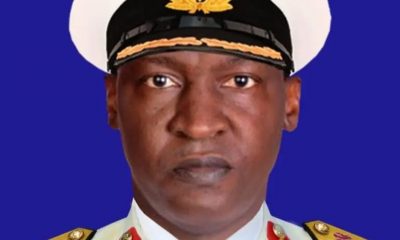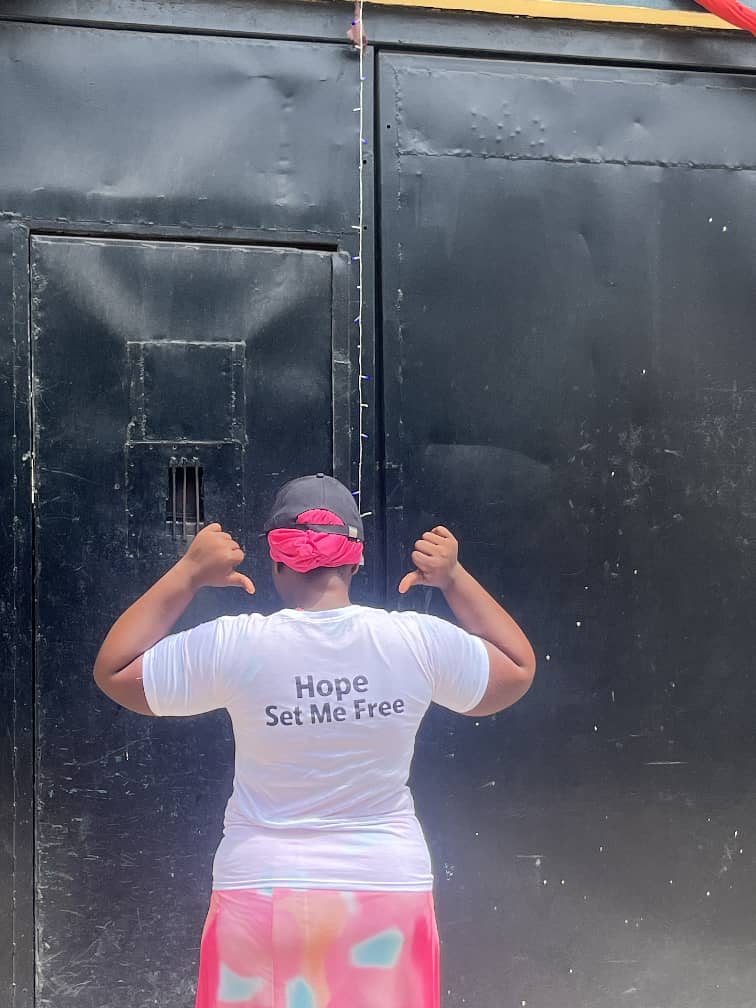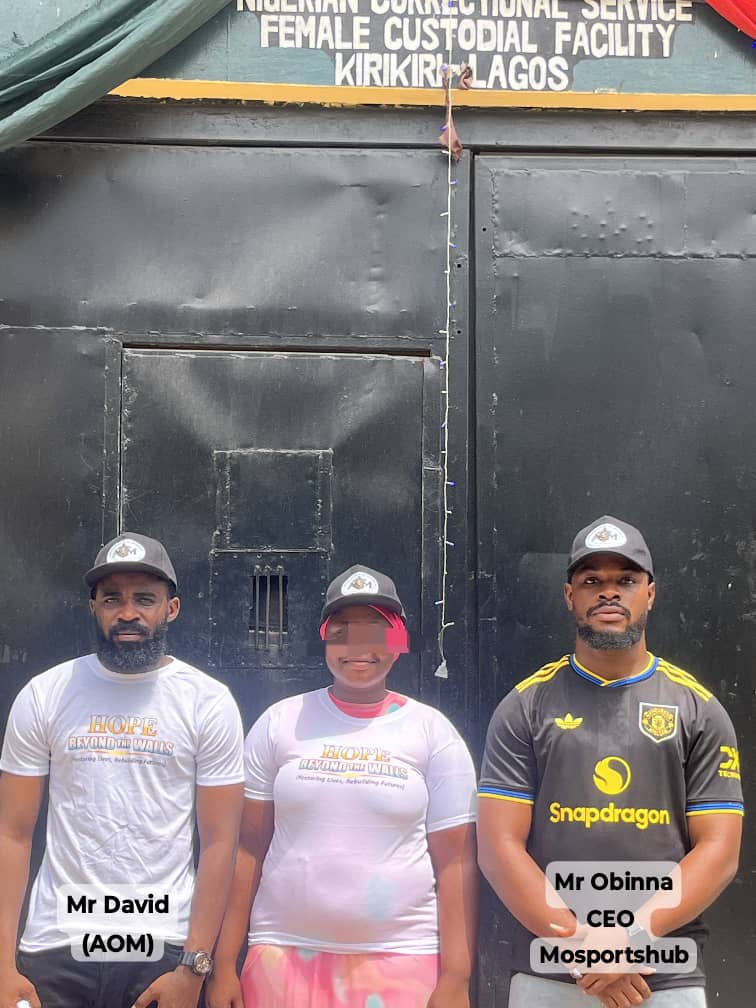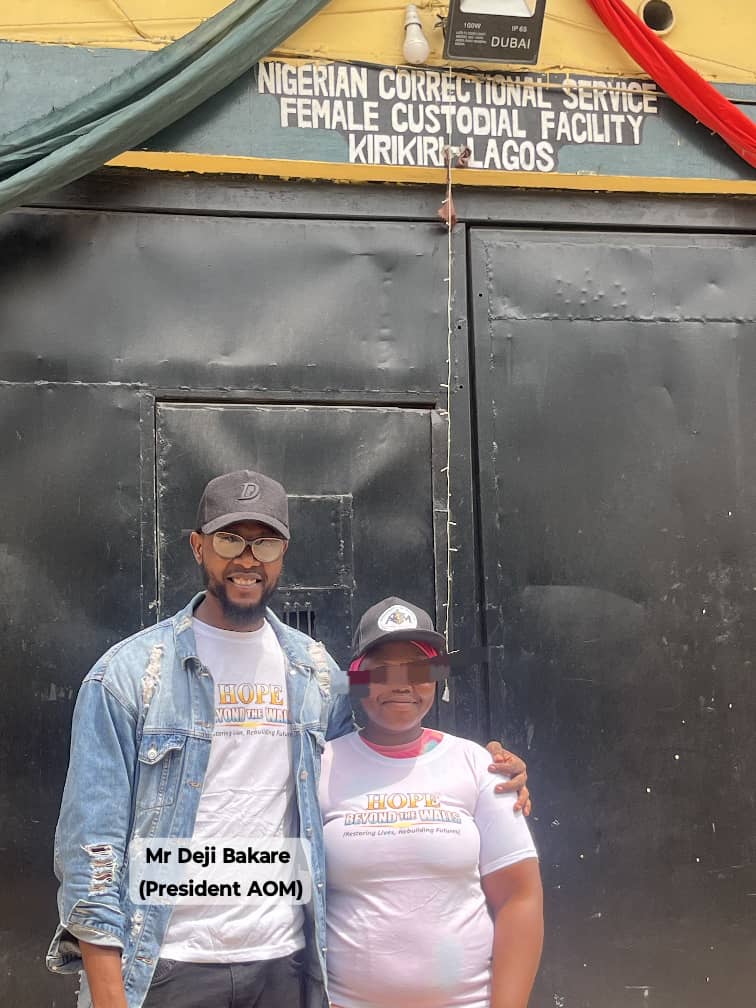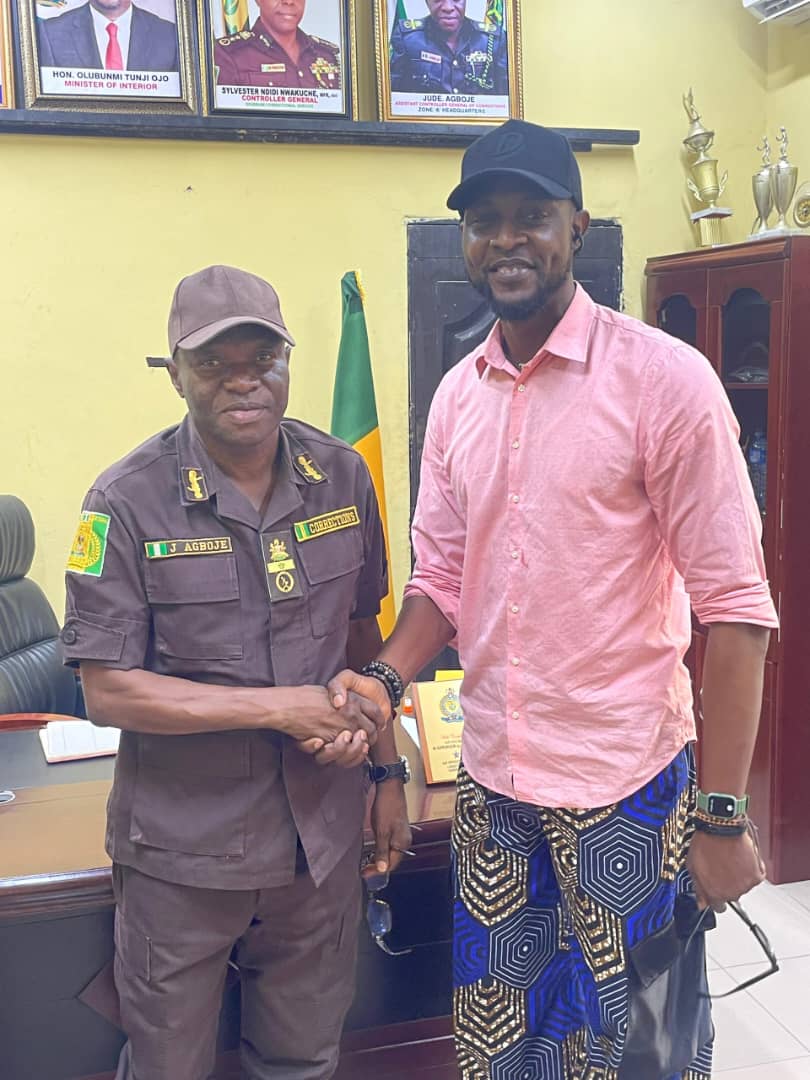society
Rains Expose Lagos’ Crumbling Roads, Bridges as Sanwo Olu’s Covid Focus Neglects Infrastructure
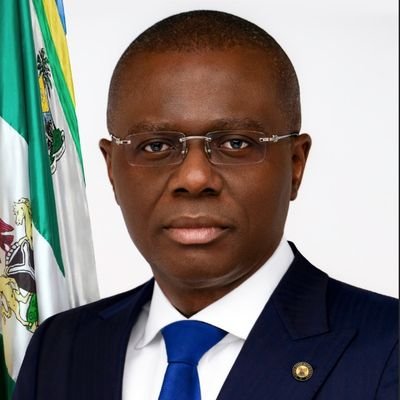
It is no longer news that Nigeria is still trying to grapple with the effects of COVID 19 which hit the world early on in January and took a hefty toll sometime in February.
A good number of countries like Germany, New Zealand, South Africa have put plans in motion to overcome recession with stimulus packages ranging from Germany’s 160 billion euros to South Africa’s R500 billion and have also accelerated spending’s on infrastructure and the economy as a whole.
Nigeria on its part seems to be focused more on fighting COVID 19 while Infrastructure and Security have been relegated to the background by almost all state governments leaving the economy in dire straits.
Lagos, Nigeria’s commercial capital for example has recorded impressive results in the fight against COVID-19.
Its Governor Babajide Sanwo Olu of Lagos has however persistently ignored calls to fix dilapidated roads which have now become death traps as the rains fall in full force or likewise check the growing spate of insecurity across the state.
The port city of Apapa continues to experience crushing gridlock with billions of revenue lost monthly by importers and exporters using the port facilities at Apapa and Tin Can ports.
In the case of the roads which are fast becoming death traps to Lagosians with gullies and craters littered around Lagos, former Governor Akinwunmi Ambode, stated in the past that the state recorded a whooping loss of N250 billion to traffic annually.
This is besides the pains businesses and families who often spend four or more hours for a 30 minutes’ journey are exposed to daily due to the excruciating traffic jam.
Despite this revelation by the former governor, he did little or nothing to salvage the challenge.
A resident of Lagos, Segun Akanbi, lamented, “the current Governor came in with a lot of promise, performed fairly but has now diverted focus to the fight against COVID 19 to the detriment of other aspects especially roads.”
There is almost no area in the state that is spared of bad roads, but the worst-hit places are: Mile 2, Abule Ado, Alakija, Lagos-Abeokuta Expressway up to Ikeja Along, Lagos-Ibadan Expressway, Oworosoki- Oshodi Expressway, Oshodi-Apapa Expressway, Ikorodu Road, Lagos-Badagry Expressway, Funsho-Wiliams Avenue, by Costain area, which has been closed to traffic for construction work on the Costain bridge.
Others are: Kirikiri Road, Apapa, which has worsened traffic gridlock caused by truck operators who have taken over the road leaving little or no space for other road users. Satellite Town Road, Oriade LCDA, Otto-Wharf Bandary Road, Ajegunle, In Ajeromi- Ifekodun LGA. Chivita-Canoe Road, Oshodi-Isolo LGA, Isheri-Osun, LCDA, Ishawo, Road, Idimu Pipeline, Ikorodu, among others.
These days, it is a dreadful experience for commuters and motorists to navigate through Lagos-Badagry Expressway. Plying the international road has been hectic due to several failed portions on both sides of the highway, worsened by persistent rainfall which has forced motorists to spend valuable hours maneuvering the road.
In the case of the Ports, stakeholders and residents also continue to appeal to both state and the Federal Govt that a lasting solution be found to solve the gridlock and the infrastructure decay on the Apapa port and Tin Can Island access road to no avail.
President, Muhammadu’s Buhari, gave an ultimatum that made no impact as it is still business as usual with a lot of loss to Nigeria, stakeholders and residents.
Even the visit of Vice President, Professor Yemi Osinbajo brought no respite.
A recent study indicates that at least three of every ten years spent in Lagos is lost to traffic. It means Lagosians spend an average of seven hours 20 minutes in traffic every day.
An economic analyst, Kolapo Oluwo averred that the long hours spent daily in traffic with its attendant economic as well as health, emotional and relational costs is colossal.
“For a potential megacity and the economic hub of the country it shows the incapacity and lack of visionary leadership, despite media campaigns and allusions to the contrary.”
He noted that: “Lagos is the commercial, economic, as well as financial capital of Nigeria accounting for over 50 percent of the industrial and commercial establishments, as well as 70 percent of manufacturing activities. In addition, it has the most active stock exchange in West Africa; its four ports collectively handle about 75 and 90 percent of the country’s imports and non-oil exports by weight respectively. Even more, its international airport handles about 80 percent of airborne exports and imports and 80 percent of passenger movements in and out of the country.”
Oluwo Further said, “the state’s population has continued to grow rapidly – put at between six to eight percent per annum – and is a dragnet for school leavers and other economic migrants from other parts of the country. It is projected that the population of the city will grow to 36 million by 2050.”
A public Analyst, Emeka Ohanyere buttressed this saying despite its huge population and importance, road is the city’s most common and available means of transport. Rail and water transportation are meanwhile relatively under-developed in Lagos.
“Years of military rule, underinvestment and poor maintenance of existing transport infrastructure has seen Lagos lag behind other major global cities in the utilisation of efficient public transportation system such as urban rail system and modern high capacity buses.”
As at 2006, it was estimated that the city’s transport infrastructure and services were at levels that supported a population of six million.
In 2006, the government developed a transport master plan to integrate road, water, rail, and cable-car transport to provide one of the most efficient systems of transportation in a megacity.
Shortly after, in 2008, the Bus Rapid Transit (BRT) was launched as a stop-gap measure while seven train lines were planned to link all parts of the states and even Ogun state with light rail.
However, due to paucity of funds, only the contract for the blue line (the 27-kilometre Badagry line running from Okokomaiko to Marina via Iddo) was awarded at the colossal cost of $1.2 billion (compared to similar projects in other parts of Africa awarded for just a fraction of that amount) to be completed in 2011.
It was projected others will be awarded subsequently and the entire master plan will be completed in 2020.
Analysts have however argued that as governments grapple with the health care challenges associated with the Covid-19 pandemic, the economic toll must also be considered.
Economist, Muyiwa Akintemi says this is a central question that should preoccupy the government as rescue packages amounting to trillions of dollars are announced around the world.
“One critical step government can take is to earmark part of the stimulus spending for infrastructure. During a crisis of near unprecedented scale, paying people’s wages, supporting the most vulnerable and keeping businesses afloat are important priorities in the immediate term. But these measures alone will not bring long-lasting results. By contrast, investment in new infrastructure, such as hospitals, schools, renewable energy and digital networks, will create jobs and deliver tangible assets that will fuel long-term economic growth.
“We have seen in the past; infrastructure spending is one of the key levers that government can pull to stimulate the economy. Spending on concrete and steel, when well directed, boosts both short-term demand and long-term productivity, especially in a time of economic crisis. According to a 2014 study by the IMF, an increase in capital spending of 1.0% of GDP leads to a 0.4% uplift in output that same year, and a 1.5% rise four years later.”
He noted that this economic dividend occurs because building new infrastructure lays the groundwork for future economic growth, whether that’s an
improved transport network to move goods, a digital backbone to power a new economy or education facilities to train a skilled workforce for the future.
“Moreover, countries that spend on new capital stock tend to attract more private investment – as we have seen time and again, the availability of reliable underlying infrastructure boosts productive capacity and enables sustained economic activity,” Akintemi concluded.
society
Tinubu Mourns Rear Admiral Musa Katagum: A National Loss for Nigeria’s Military Leadership
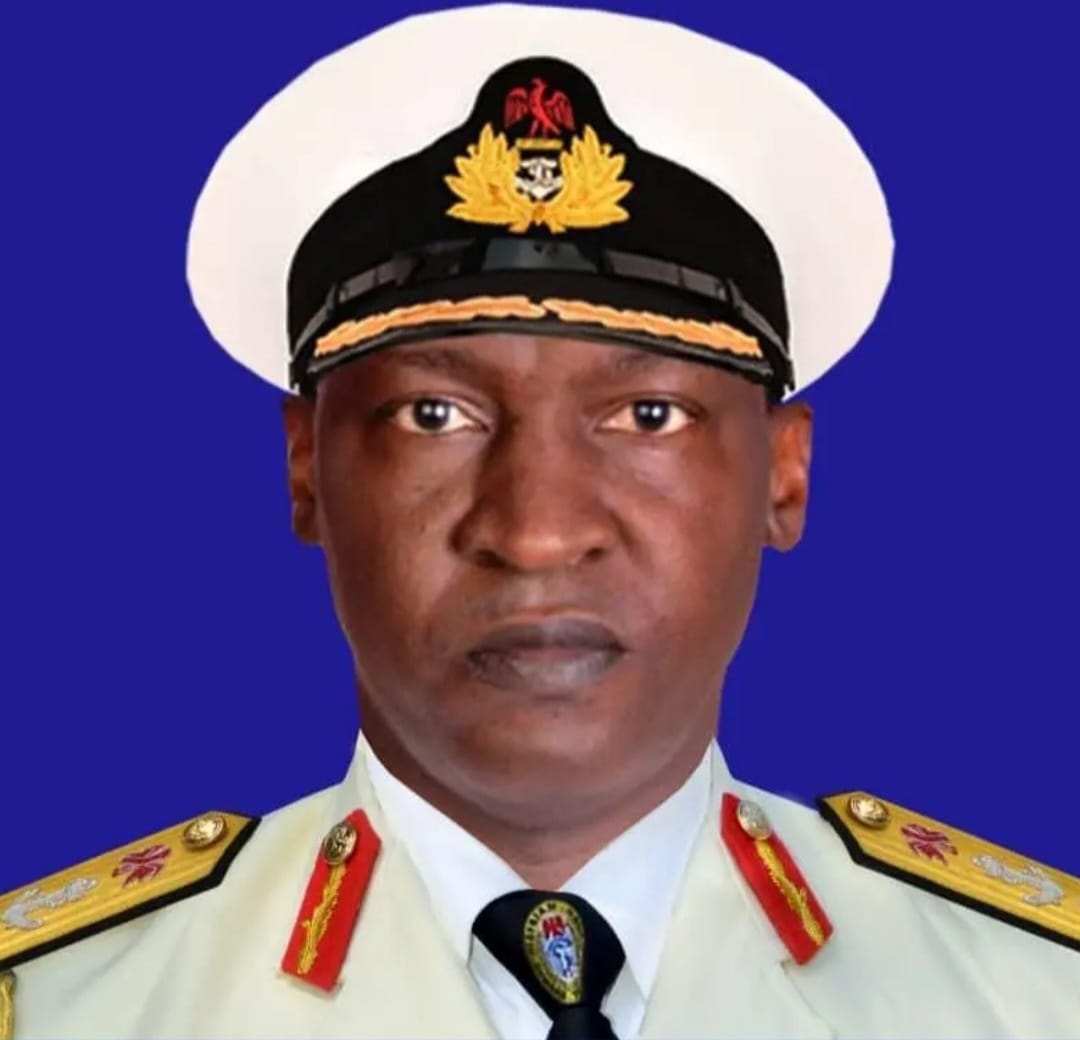
Tinubu Mourns Rear Admiral Musa Katagum: A National Loss for Nigeria’s Military Leadership
By George Omagbemi Sylvester | Published by SaharaWeeklyNG
“President Tinubu Pays Tribute as Nigeria’s Naval Command Mourns the Sudden Loss of a Strategic Maritime Leader at a Critical Security Juncture.”
Abuja, Nigeria – President Bola Ahmed Tinubu has officially mourned the death of Rear Admiral Musa Bello Katagum, the Chief of Naval Operations of the Nigerian Navy, who died on February 19, 2026, after a protracted illness while receiving treatment abroad. His passing has sent ripples through Nigeria’s defence establishment and national security architecture, marking the loss of one of the most experienced and respected maritime commanders in recent memory.
In a statement released on February 20, 2026 by his Special Adviser on Information and Strategy, Bayo Onanuga, President Tinubu described Rear Admiral Katagum’s death as a “significant blow to the military and the nation,” noting the late officer’s vast experience and “invaluable contributions” to both the Nigerian Navy and the broader “Armed Forces of Nigeria”. The President extended heartfelt condolences to the bereaved family, naval personnel and the nation at large, while praying for solace and strength for colleagues and loved ones.
Rear Admiral Katagum’s career was marked by distinguished service in several strategic capacities. Before his appointment as Chief of Naval Operations in November 2025, he served as Director of the Presidential Communication, Command and Control Centre (PC4) and Chief of Intelligence of the Nigerian Navy-roles that placed him at the nexus of naval operational planning and intelligence gathering. His leadership was widely credited with enhancing the Navy’s capacity to respond to growing maritime threats in the Gulf of Guinea, including piracy, illegal bunkering, and transnational crime.
Security policy experts emphasise that Katagum’s loss comes at a critical juncture for Nigeria. Dr. Adebola Akinpelu, a defence analyst at the Institute for Security Studies, observes that “Nigeria’s maritime domain remains a frontline in the broader security challenges facing the nation; the loss of an adept operational leader like Rear Admiral Katagum is not just a personnel change but a strategic setback.” His insight reflects broader concerns about continuity in military leadership amid intensifying threats.
The Nigerian Navy’s own statement, confirmed by the Directorate of Naval Information, affirmed that Katagum’s “exemplary leadership, strategic insight, and unwavering loyalty” were central to boosting operational readiness and national defence. According to Captain Abiodun Folorunsho, the Director of Naval Information, “His legacy remains a source of inspiration across the services.”
As Nigeria grapples with complex security landscapes at its land and maritime frontiers, the death of Rear Admiral Katagum underscores a broader national imperative: strengthening institutional capacities while honouring the service and sacrifice of those who defend the nation’s sovereignty. In the words of military scholar Professor James Okoye, “Leadership in security institutions is not easily replaceable; it is built through experience, trust and strategic clarity; qualities that Katagum embodied.”
Rear Admiral Musa Katagum has since been laid to rest in accordance with Islamic rites, leaving behind a legacy that will inform Nigerian naval operations for years to come.
society
Viral “Chat With God” Claim Targeting Kenyan Prophet David Owuor Proven False

Viral “Chat With God” Claim Targeting Kenyan Prophet David Owuor Proven False
By George Omagbemi Sylvester, SaharaWeeklyNG
“Viral screenshot sparks national controversy as the Ministry of Repentance and Holiness dismisses fabricated “divine” WhatsApp exchange, raising urgent questions about faith, digital misinformation, and religious accountability in Kenya.”
A sensational social media claim that Kenyan evangelist Prophet Dr. David Owuor displayed a WhatsApp conversation between himself and God has been definitively debunked as misinformation, sparking national debate over digital misinformation, religious authority and faith-based claims in Kenya.
On February 18–19, 2026, an image purporting to show a WhatsApp exchange between a deity and Prophet Owuor circulated widely on Twitter, Facebook, WhatsApp groups and TikTok. The screenshot, allegedly shared during one of his sermons, was interpreted by many as illustrating unprecedented direct communication with the divine delivered through a mainstream messaging platform; a claim that, if true, would have broken new ground in how religious revelation is understood in contemporary society.
However, this narrative quickly unraveled. Owuor’s Ministry of Repentance and Holiness issued an unequivocal public statement calling the image “fabricated, baseless and malicious,” emphasizing that he has never communicated with God through WhatsApp and has not displayed any such digital conversation to congregants. The ministry urged the public and believers to disregard and stop sharing the image.
Independent analysis of the screenshot further undermined its credibility: timestamps in the image were internally inconsistent and the so-called exchange contained chronological impossibilities; clear indicators of digital fabrication rather than an authentic conversation.
This hoax coincides with rising scrutiny of Owuor’s ministry. Earlier in February 2026, national broadcaster TV47 aired an investigative report titled “Divine or Deceptive”, which examined alleged “miracle healing” claims associated with Owuor’s crusades, including assertions of curing HIV and other chronic illnesses. Portions of that investigation suggested some medical documentation linked to followers’ health outcomes were fraudulent or misleading, intensifying debate over the intersection of faith and public health.
Credible faith leaders have weighed in on the broader context. Elias Otieno, chairperson of the National Council of Churches of Kenya (NCCK), recently urged that “no religious leader should replace God or undermine medicine,” affirming a widely accepted Christian understanding that divine healing does not supplant established medical practice. He warned against unverified miracle claims that may endanger lives if believers forego medical treatment.
Renowned communications scholar Professor Pippa Norris has noted that in digital societies, “religious authority is increasingly contested in the public sphere,” and misinformation (intentional or accidental) can quickly erode trust in both religious and secular institutions. Such dynamics underscore the importance of rigorous fact-checking and responsible communication, especially when claims intersect profoundly with personal belief and public well-being.
In sum, the viral WhatsApp chat narrative was not a revelation from the divine but a striking example of how misinformation can exploit reverence for religious figures. Owuor’s swift repudiation of the false claim and broader commentary from established church bodies, underline the ongoing challenge of balancing deeply personal faith experiences with the evidence-based scrutiny necessary in a digitally connected world.
society
HOPE BEYOND THE WALLS 2026: ASSOCIATION OF MODELS SUCCESSFULLY SECURES RELEASE OF AN INMATE, CALLS FOR CONTINUED SUPPORT

HOPE BEYOND THE WALLS 2026: ASSOCIATION OF MODELS SUCCESSFULLY SECURES RELEASE OF AN INMATE, CALLS FOR CONTINUED SUPPORT
The Association of Models (AOMNGO) proudly announces the successful completion of the first edition of Hope Beyond the Walls 2026, a humanitarian initiative dedicated to restoring hope and freedom to deserving inmates.
Despite enormous challenges, financial pressure, emotional strain, and operational stress, the organization remained committed to its mission. Through perseverance, faith, and collective support, one inmate has successfully regained freedom a powerful reminder that hope is stronger than circumstance.
This milestone did not come easily.
Behind the scenes were weeks of coordination, advocacy, fundraising, documentation, and intense engagement. There were moments of uncertainty, but the determination to give someone a second chance kept the vision alive.
Today, the Association of Models gives heartfelt appreciation to all partners and sponsors, both locally and internationally, who stood with us mentally, financially, morally, and physically.
Special Recognition and Appreciation To:
Correctional Service Zonal Headquarters Zone A Ikoyi
Esan Dele
Ololade Bakare
Ify
Kweme
Taiwo & Kehinde Solagbade
Segun
Mr David Olayiwola
Mr David Alabi
PPF Zion International
OlasGlam International
Razor
Mr Obinna
Mr Dele Bakare (VOB International)
Tawio Bakare
Kehinde Bakare
Hannah Bakare
Mrs Doyin Adeyemi
Shade Daniel
Mr Seyi United States
Toxan Global Enterprises Prison
Adeleke Otejo
Favour
Yetty Mama
Loko Tobi Jeannette
MOSES OLUWATOSIN OKIKIADE
Moses Okikiade
(Provenience Enterprise)
We also acknowledge the numerous businesses and private supporters whose names may not be individually mentioned but whose contributions were instrumental in achieving this success.
Your generosity made freedom possible.
A CALL TO ACTION
Hope Beyond the Walls is not a one-time event. It is a movement.
There are still many deserving inmates waiting for a second chance individuals who simply need financial assistance, legal support, and advocacy to reunite with their families and rebuild their lives.
The Association of Models is therefore calling on:
Corporate organizations
Local and international sponsors
Philanthropists
Faith-based organizations
Community leaders
Individuals with a heart for impact
to partner with us.
Our vision is clear:
To secure the release of inmates regularly monthly, quarterly, or during special intervention periods through structured support and transparent collaboration.
HOW TO SUPPORT
Interested partners and supporters can reach out via
Social Media: Official Handles Hope In Motion
Donations and sponsorship inquiries are welcome.
Together, we can turn difficult stories into testimonies of restoration.
ABOUT AOMNGO
The Association of Models (AOMNGO) is a humanitarian driven organization committed to advocacy, empowerment, and social impact. Through projects like Hope Beyond the Walls, the organization works tirelessly to restore dignity and create opportunities for individuals seeking a second chance.
“When we come together, walls fall and hope rises.”
For media interviews, partnerships, and sponsorship discussions, please contact the Association of Models directly.
-

 celebrity radar - gossips6 months ago
celebrity radar - gossips6 months agoWhy Babangida’s Hilltop Home Became Nigeria’s Political “Mecca”
-

 society6 months ago
society6 months agoPower is a Loan, Not a Possession: The Sacred Duty of Planting People
-

 society5 months ago
society5 months agoReligion: Africa’s Oldest Weapon of Enslavement and the Forgotten Truth
-

 news6 months ago
news6 months agoTHE APPOINTMENT OF WASIU AYINDE BY THE FEDERAL GOVERNMENT AS AN AMBASSADOR SOUNDS EMBARRASSING


